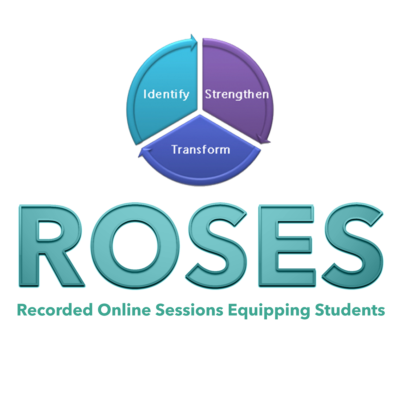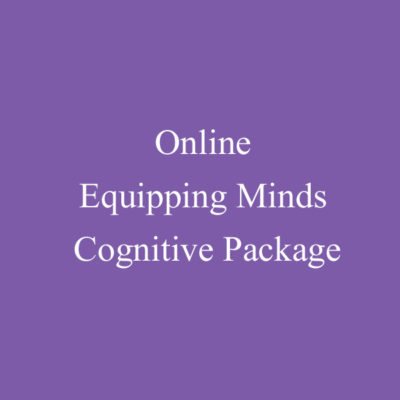Level 1 Certification April 11-13 In Person, Virtual, or USB
Level 2 Certification April 13-15 In Person, Virtual, or USB
Fairfield Inn & Suites by Marriott
40 Chenault Bridge Road
Frankfort, KY 40601
Reserve rooms below:
Monday, April 11 8:00 am-5pm EDT Level 1
If you are unable to attend a session, you will have access to the recordings.
- 8:00 am Dr.Carol Brown Research Behind Equipping Minds Holistic Approach to Cognitive Development: Participants will learn that the brain can change, as the latest research on neuroplasticity has proven. Cognitive and educational gains have been proven with this evidence-based curriculum, which everyone can replicate and use. We know that physical, cognitive, behavioral, and relational skills develop together rather than in isolation. Providing a more holistic approach to build challenge areas and enhance strengths increases confidence, communication skills, memory skills, comprehension, processing skills, and relational skills. Treating the whole person through a multidisciplinary approach will give the best results.
- 9:00 am Clayton Brown: Understanding the Mind of the Struggling Learner: Clayton will share his personal story of having a severe language processing disorder, dyslexia, dysgraphia, and dyscalculia. He’ll take you through his 19-year journey of unending therapies and finally graduating from college on the Dean’s List with no symptoms of his previous challenges. He is a gifted speaker, writer, and educational therapist who is giving hope to learners who have challenges.
- 10:00 am Dr. Carol Brown Equipping Minds Cognitive Development Curriculum Overview Participants will review the key sections of the workbook and how to use each area.
- 11:00 am Dr.Carol Brown: Assessing and Developing Cognitive Functions Feuerstein defines cognitive functions as “thinking abilities” that can be taught, learned, and developed. Feuerstein has categorized the cognitive functions according to the three major phases of the mental act—namely, input, elaboration, and output. Although artificially separated into three phases, they don’t necessarily occur separately in life. However, the subdivision is useful to analyze and describe thinking as well as determine what factors might negatively affect thinking. This model can be used by teachers and parents to better understand and help the child who is experiencing difficulties with a particular task. Learn how to access your learner’s strengths and challenges. Understand how and when to integrate exercise, nutrition, vision therapy, sound therapy, neurodevelopmental/ movement therapy, vestibular therapy, and cognitive therapy.
- 12:00 Lunch –
- 1:00- 2:00 pm Dr. Carol Brown Equipping Minds Sessions Overview Carol will walk participants through the first ten sessions of the program and how to implement in the school day. The lesson plans for the 30 hours of intervention in the Equipping Minds research study will also be discussed.
- 2:00-5:00 pm Dr.Carol Brown Exercises to Improve Processing, Language, and Working Memory Participants will learn the foundational exercises for developing language processing, visual processing, auditory processing, and working memory.
Tuesday, April 12 8:00am-5pm EDT Level 1
- 8:00 am Dr. Carol Brown & Kathy Johnson Accessing and Integrating Primitive Reflexes:Participants will learn seven primitive reflexes, the symptoms associated with each, how to test, and how to integrate. These reflexes help provide the newborn with learning experiences that act as a foundation for more complex muscle movements and later cognitive tasks. The reflexes are integrated into a sequential fashion from 3-11 months. Lack of integration of these reflexes past 6-12 months can interfere with cortical and cerebellum processing and affect learning, movement, and attention.
- 9:30 am Dr.Carol Brown: Understanding the Visual, Auditory, and Vestibular System Learn the importance of the vestibular system, visual processing, and auditory processing to learning. Learn the exercises to connect these pathways. The work of Dr. Harold Levinson on the vestibular system and treatment with anti-motion sickness supplements will be examined.
- 10:30 am Dr.Carol Brown: Exercises for the Brown 6-9 N Back Dr. Carol Brown developed an adaptive n-back with nine tasks or the “Brown N Back” in which learners were asked to associated animals with symbols, vowels with sound, symbols, and colors, numbers with symbols and colors, recall images and sequence of US presidents, identify colors, and identify directions of left, right, up, and down. To Brown’s knowledge, there has not been a Six N-back task that utilizes a human mediator requiring the learner to hear auditory instructions, use their hands to write or place a cube while holding a pattern for nine categories, and saying what they are doing.
- 12:00 pm Lunch –
- 1:00-3:00 pm Dr.Carol Brown: Foundations for Intelligent Thinking with Aristotle’s Ten Categories to Develop Comprehension and Critical Thinking Learn the ten categories and how to use Socratic questioning with a picture. Comprehension is the ability to remember and understand what you read. One can “see” the details of a passage, as well as understand the general concepts. The ancient Greeks were the first to grasp the importance of imagery, or, as we may say today, “making a movie in your mind,” when reading or listening. Learn exercises to develop comprehension and critical thinking.
- 3:00-5:00 pm Faith Berens Prepare the Brain for Reading, Math, and Writing Faith will discuss the cognitive skills needed for success in reading, math, and writing and how to strengthen these areas.
Wednesday, April 13 8:00-5 pm EDT Level 1 & Level 2 Combined Day
- 8:00- 9:00 Ann Maura Hinton Equipping Minds through Trauma-Informed Lens and Interventions Participants will learn how trauma and stress impact behavior, social skills, communication, and learning. Ann Maura will share the best practices from the leading experts in the field.
- 9:00- 10:00 Nutrition and Brain Development You are what you eat, digest, and absorb. But what if one or more parts of that process aren’t functioning properly? And what does the food we eat have to do with how your brain functions? Diet can have a huge impact on one’s ability to learn, process, and store information, and is an integral part of a holistic approach to improved cognitive function. We will discuss the implications of diet as it relates to children with special needs.
- 10:00- 12:00 Dr. David Lindemann: Hope and Healing from Trauma:Integrating the Cognitive and Physiologic Aspects of Growth and Healing Participants will learn how the physical and sensory issues can be addressed simultaneously with cognitive maturation using a combination of verbal and reflexive tools.
- 12:00-1:00 Lunch – Provided
- 1:00- 4:00 Dr.Carol Brown: Implementing Cognitive Training into your Day. Public, private and homeschools are implementing Equipping Minds in to their daily schedule with learners of all abilities. We will be practicing the different games and exercises to learn how to implement one on one, small group, and in large classrooms. Learn how to integrate into different subject areas.This can be used in numerous settings: adult living centers, workplace, orphanage, learning center, clinic, special needs camp, church, and any where learners are struggling with memory and learning.
- 4:00-5:00 Rafaele Joundry: Importance of the Auditory System and how Sound Therapy can Rehabilitate the Ear and Impact Learning Sound Therapy is a unique listening system using new knowledge about the brain. The Sound Therapy program is designed to work synergistically with other treatments, meaning that both methods enhance each other. Based on the discoveries of the ear specialist, Dr. Tomatis, the Sound Therapy method developed by Patricia and Rafaele Joudry is specially recorded programs of highly filtered classical music are used to rehabilitate the ear and stimulate the brain. Sound Therapy stimulates the ear by presenting it with constantly alternating sounds of high and low tone within the complex structure of classical music. Stimulation via the sensory pathways re-maps the brain, improving the way we understand and process sound. The brain, in turn, sends signals back to the ear to improve its function. As the ear becomes open and receptive to high frequency sounds these are then passed on to the brain. Research has shown that brain function is improved through high-frequency sound. Participants will also listen to sound therapy.
Thursday, April 14 8:00am-5:00pm EDT Level 2
- 8:00- 9:00 Dr. Carol Brown Results of Equipping Minds Research Study and Contributions to Precedent Literature The five peer-reviewed journal articles in the Journal of Alternative Medicine Research will be discussed as well as the book Human Development: Equipping Minds with Cognitive Curriculum. Participants will discuss the results of the research study in detail.
- 9:00-10:00 Clayton Brown: Study Skills Clayton will share his study skill methods which are based on how the brain learns. He will explain the importance of scheduling, calculating the number of pages to read, 4 colored highlighting methods, writing and project guidelines, and the use of sound therapy for attention and processing.
- 10:00-12:00 Dr. Carol Brown: Conducting an Evaluation/ Dynamic Assessment Learn how to access your learner’s strengths and challenges. Understand how and when to integrate exercise, nutrition, vision therapy, sound therapy, neurodevelopmental/ movement therapy, vestibular therapy, and cognitive therapy.
- 12:00-1:00 Lunch Provided
- 1:00 -2:00 Dr. Carol Brown Writing Recommendations and Understanding Psychological Testing Participants will learn how to write up the results of the evaluation from the assessment, intake questionnaire, and learning screening.
- 2:00-4:00 Dr. Carol Brown: Advanced Cognitive Exercises Participants will learn advanced steps for the exercises as well as additional exercises in the workbook not covered in Level 1.
- 4:00-5:00 Dr. Carol Brown: Classroom Connection of Curriculum Participants will learn how to use Equipping Minds throughout the school day. Implementation of Critical Thinking Activities, Perplexors, Grammar, Writing, Spelling, and Auditory Processing.
Friday, April 15 8:00am-5:00pm EDT Level 2
- 8:00-10:00 Dr. Carol Brown Modifications and Questions Carol will demonstrate numerous modifications that she has used with learners with more severe neurodevelopmental disorders. There will also be a time for participants to ask questions regarding the implementation of the program.
- 10:00-11:00 Dr. Carol Brown Conducting Workshops for Groups and Classrooms Participants will learn how to conduct an eight-week workshop for community/church groups and how to implement in small groups and large classrooms in a public, private, or homeschool coop environment.
- 11:00-12:00 Dr. Carol Brown Developing your Learning Center
- 12:00-1:00 Lunch Provided
- 2:00-5:00 Dr. Carol Brown Practicing the Brown 6-9 N-Back Steps and Games Participants will demonstrate their ability to use the program.
*Level 1 Certification and Level 2 Certification in Equipping Minds Cognitive Development Curriculum for those who attend all three days and display competence in the implementation of the program. A certificate of attendance will be provided for all participants who attend all sessions for CEU and PD Credits.



